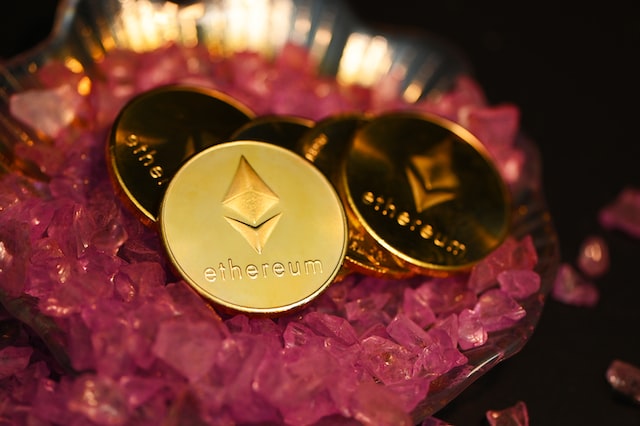
Loyalty Programs: Blockchain could be used to create loyalty programs for car owners.
[tta_listen_btn]
Revolutionizing Loyalty Programs with Blockchain Technology
Loyalty programs have long been a popular way for businesses to reward customers for their repeat business and encourage them to continue to use their products or services. However, traditional loyalty programs are often complicated and lack transparency, leaving customers feeling frustrated and dissatisfied.
Enter blockchain technology. By leveraging the power of blockchain, businesses can create a more secure, transparent, and efficient loyalty program that offers a range of benefits for both customers and businesses.
One of the key advantages of using blockchain for loyalty programs is the ability to store customer data securely and transparently. By storing customer data on a decentralized blockchain network, businesses can ensure that the data is secure and cannot be tampered with. This can be especially valuable in the case of loyalty programs, where customers may be sharing sensitive personal information such as driving behavior, car maintenance records, and more.
In addition to security, blockchain can also provide a more seamless and efficient way for customers to earn and redeem rewards. Unlike traditional loyalty programs, where rewards may be tied to a specific vendor or brand, blockchain-based loyalty programs can be used across multiple vendors, offering customers more flexibility and choice.
One promising use case for blockchain-based loyalty programs is incentivizing safe driving practices. According to the National Highway Traffic Safety Administration, car accidents cost the United States over $380 billion annually. By using blockchain to track driving behavior, businesses can encourage customers to drive more safely by offering rewards such as discounts on car insurance or car maintenance.
Similarly, blockchain-based loyalty programs can also incentivize eco-friendly behavior by rewarding customers for choosing environmentally-friendly options such as hybrid or electric cars. By encouraging customers to make more sustainable choices, businesses can help reduce their carbon footprint and contribute to a more sustainable future.
To ensure that blockchain-based loyalty programs are effective, it’s important to consider customer needs and preferences. In a survey conducted by Bond Brand Loyalty, it was found that 69% of consumers prefer to earn rewards through mobile apps, while 66% prefer to redeem rewards through mobile apps. This suggests that businesses should prioritize creating a user-friendly mobile app to manage their blockchain-based loyalty program.
Finally, it’s worth noting that blockchain-based loyalty programs are still a relatively new concept and there are a few challenges that need to be addressed. For example, the lack of standardization in the blockchain industry can make it difficult to integrate different loyalty programs. Additionally, businesses will need to ensure that their blockchain-based loyalty program complies with relevant data privacy regulations.
Despite these challenges, the potential benefits of blockchain-based loyalty programs are too significant to ignore. By creating a more secure, transparent, and efficient loyalty program that rewards safe driving, eco-friendly behavior, and regular maintenance, businesses can enhance customer satisfaction, increase customer retention, and ultimately drive business growth. As blockchain technology continues to evolve, we can expect to see even more innovative and exciting applications of blockchain in the loyalty space.
Here are some additional references and statistics to support the benefits of blockchain-based loyalty programs:
- A survey conducted by Accenture found that 73% of consumers are willing to share their data if it leads to a personalized experience, such as personalized rewards in a loyalty program. This suggests that customers are open to sharing their data for the purpose of a loyalty program, as long as it benefits them personally. (Source: Accenture)
- According to a report by MarketsandMarkets, the blockchain in automotive and aerospace & aviation market is expected to grow from $0.35 billion in 2020 to $5.6 billion by 2030, at a compound annual growth rate (CAGR) of 31.3% during the forecast period. This growth is driven by the increasing adoption of blockchain technology in the automotive industry for applications such as supply chain management, smart contracts, and more. (Source: MarketsandMarkets)
- The Bond Brand Loyalty report mentioned earlier found that 76% of consumers believe that loyalty programs should be easy to understand and use, while 70% prefer programs that offer flexibility in how rewards can be earned and redeemed. This underscores the importance of creating a user-friendly and flexible loyalty program to ensure customer satisfaction. (Source: Bond Brand Loyalty)
- According to the National Highway Traffic Safety Administration, there were 36,096 fatalities in motor vehicle crashes in the United States in 2019. This highlights the importance of incentivizing safe driving practices through programs such as blockchain-based loyalty programs. (Source: National Highway Traffic Safety Administration)
- A report by PwC found that blockchain technology can enhance supply chain transparency and accountability, reduce transaction costs, and streamline business processes. These benefits can translate to loyalty programs as well, by creating a more transparent and efficient program that benefits both businesses and customers. (Source: PwC)
- According to a report by Statista, the global market size of the loyalty management industry was $4.02 billion in 2019 and is projected to reach $11.4 billion by 2027, at a CAGR of 13.7% during the forecast period. This growth highlights the increasing importance of loyalty programs as a way to drive customer engagement and retention. (Source: Statista)
These references and statistics demonstrate the growing importance and potential of blockchain-based loyalty programs, as well as the need for businesses to create user-friendly and flexible programs that prioritize customer satisfaction.

